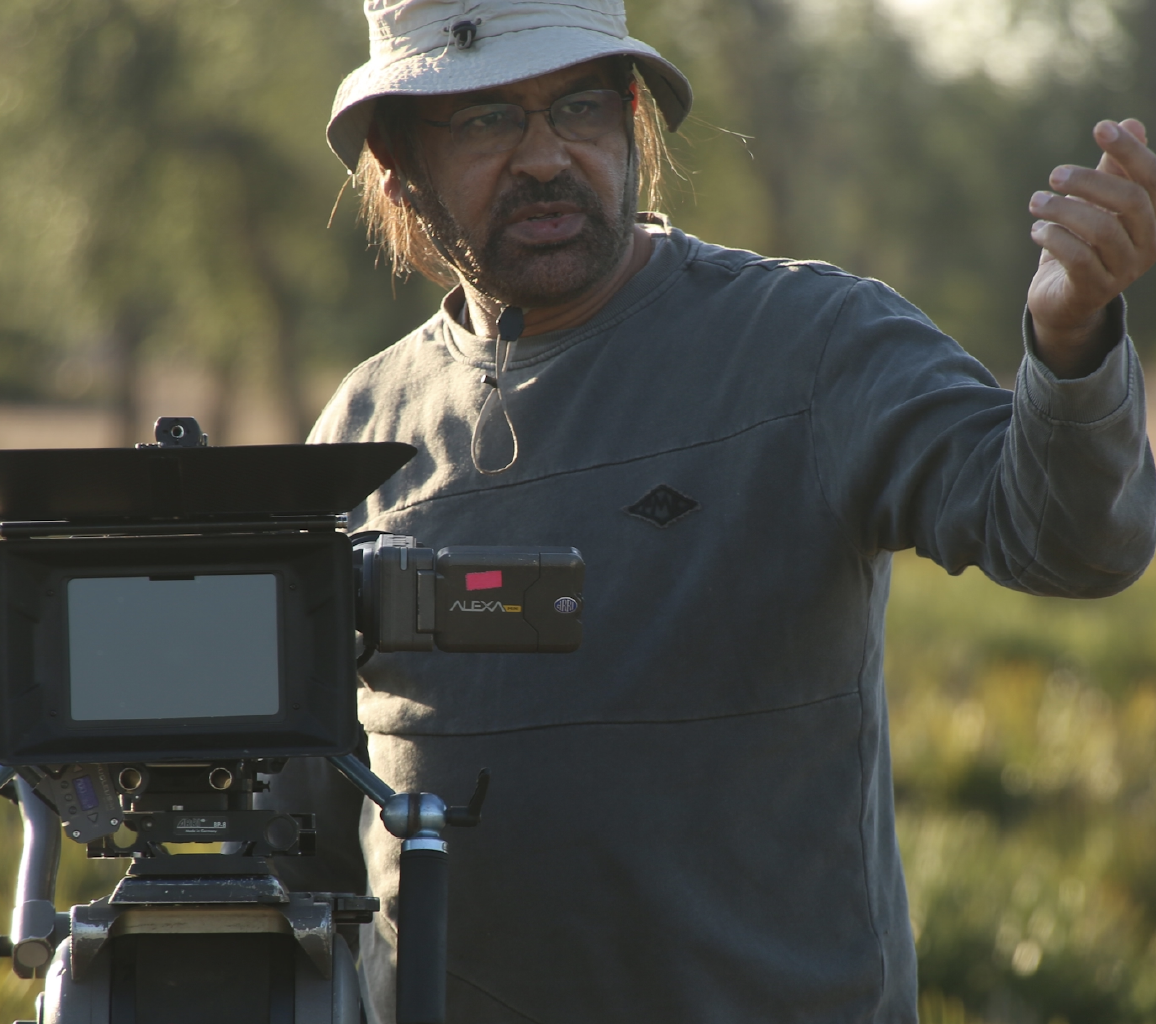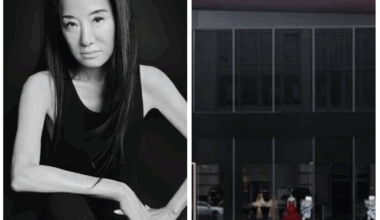
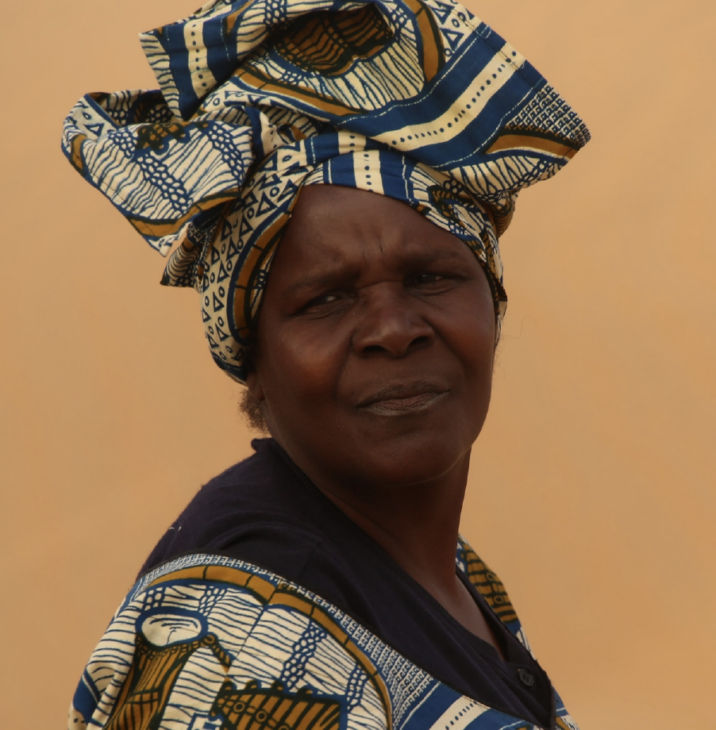
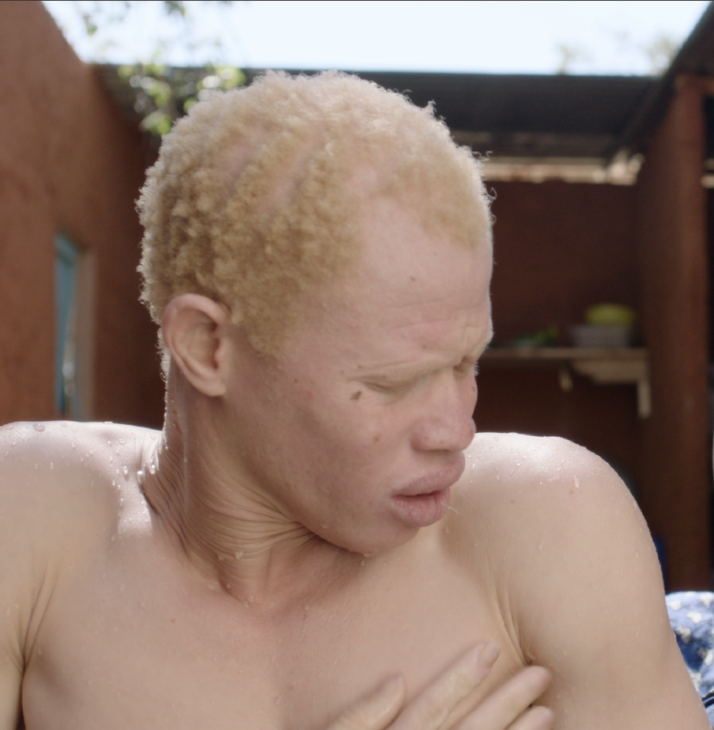
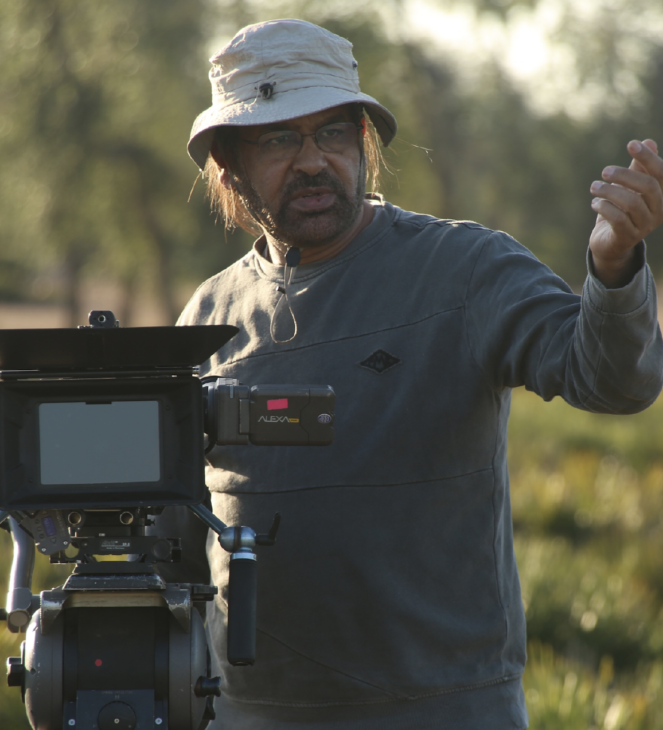
The film AFRICA BLANCA, by Azlarabe ALAOUI LAMHAZRI, was presented in Cannes at the Cannes Film Market.
AMILCAR MAGAZINE GROUP is pleased to present to you AFRICA BLANCA, a film which invites reflection and acceptance, in the face of a world full of prejudices.
AFRICA BLANCA is a film that skillfully addresses marginalization, love, and the pursuit of acceptance, offering a poignant examination of contemporary social issues in Africa and beyond.
Films are there to entertain us but also to raise awareness, make us think, feel, love, forgive and many other things. Everyone has their own relationship with cinema and different expectations, but I would still say that the primary objective remains open-mindedness. Isn’t that the beauty of cinema ?
The film AFRICA BLANCA, by Azlarabe ALAOUI LAMHAZRI, was presented in Cannes today at the Cannes Film Market.
Azlarabe ALAOUI LAMHAZRI (Azlarabe Alaoui Lamharzi) is a director, screenwriter, editor, university lecturer, film critic, journalist and writer. Azlarabe ALAOUI LAMHAZRI has won numerous international awards.
Rachel Joulia-Helou, editor-in-chief AMILCAR MAGAZINE GROUP
Interview AMILCAR MAGAZINE with the director Mr Azlarabe Alaoui
Interview by : Alexandre Joulia Helou, deputy editor-in-chief & associate Editor AMILCAR MAGAZINE GROUP & AMILCAR FRENCH RIVIERA MAGAZINE.


In your film “Africa Blanca”, you highlight the story of a mother and her albino son who flee Senegal because of their albinism. Is this still a taboo subject in Africa ?
Yes, the subject of albinism is still considered taboo in many parts of Africa. People with albinism often face discrimination, stigma, and even violence due to deeply ingrained cultural beliefs and superstitions surrounding the condition. In some African societies, there are harmful myths and misconceptions about albinism, such as the belief that albino body parts possess magical properties or bring good luck. This has led to cases of violence and persecution against albinos, including ritual killings and body mutilations for ritualistic purposes. Despite efforts to raise awareness and promote inclusivity, discrimination against albinos persists in many communities.
Films like “Africa Blanca” play a crucial role in shedding light on these issues and challenging societal attitudes towards albinism. By portraying the experiences of characters affected by albinism, such films help spark conversations, educate audiences, and promote empathy and understanding towards individuals with albinism.
Is the subject of albinism linked to superstition and tribal traditions a continuation of the fight waged by musician and politician Salif Keita in Mali with his “Salif Keita global foundation”, who works tirelessly to eradicate the stigmatization of people with albinism in Africa ?
As a documentary and fiction filmmaker, I’ve always had a fondness for documentaries. Initially, I wasn’t aware of Salif Keita. However, at a festival in Ifrane, Morocco, an albino approached me after my presentation, urging me to make a film about albinos. He was the president of an albino association in Morocco and shared his story, raising awareness about the daily challenges faced by albino individuals. This encounter sparked my project. I began by creating a documentary feature about albinos in Africa, filming in Togo, Burkina Faso, Ivory Coast, and Senegal. Upon completing the documentary, I realized the importance of further raising awareness about this cause. This led to the idea of creating a fiction feature film, giving birth to “Africa Blanca.”
Now, concerning whether the subject of albinism is linked to superstition and tribal traditions as part of Salif Keita’s ongoing fight through his “Salif Keita Global Foundation,” it’s evident that the stigmatization of albinism is deeply rooted in cultural beliefs and practices. Salif Keita’s efforts to eradicate this stigma align with my own goal of shedding light on the challenges faced by albino individuals in Africa through storytelling.
In writing your film, did you talk to Salif Keita or to other people who were able to share their life stories with you?
In the process of shooting my documentary, I didn’t speak directly with Salif Keita, but I did have the opportunity to engage with other individuals who shared their life stories with me. These individuals, whether affected by albinism themselves or involved in advocacy efforts, provided valuable insights and perspectives that enriched the documentary’s narrative.
Their stories and experiences helped me to portray the challenges and stigma faced by people with albinism in Africa authentically. While Salif Keita’s direct involvement wasn’t part of the documentary, his advocacy work and the broader context of his efforts to combat stigmatization certainly influenced my understanding of the subject matter.
Do you see cinema as a teaching tool for changing mentalities ?
Yes, I firmly believe that cinema can be a powerful teaching tool for changing mentalities. Films have the ability to evoke empathy, provoke thought, and spark conversations about complex social issues. By presenting diverse perspectives and narratives, cinema can challenge preconceived notions, debunk stereotypes, and foster understanding and empathy towards others. Through storytelling, filmmakers can shine a light on social injustices, discrimination, and other important issues that may not receive adequate attention in mainstream discourse.
By portraying the experiences of marginalized communities, cinema can amplify their voices and humanize their struggles, encouraging viewers to reflect on their own beliefs and biases. Moreover, cinema has the potential to reach a wide audience across different demographics and cultures, making it an effective medium for initiating social change on a global scale. By promoting dialogue and raising awareness, films can inspire individuals to question the status quo, advocate for positive change, and ultimately contribute to building a more inclusive and equitable society.
You’re a writer, university lecturer, director, scriptwriter, editor and journalist. With this film, do you feel more in the role of scriptwriter or journalist?
With this film, I see myself more as a screenwriter, director, and editor rather than a journalist. For me, these roles are essential for ensuring the coherence and artistic expression of the film. As a journalist, my past experience in that field is seen as separate from the process of filmmaking.
Ultimately, cinema is a journalistic force, and some films are better at denouncing societal facts than continuous TV news. Is it important for you to maintain a committed cinema ?
Ultimately, cinema can serve as a journalistic force, with some films being more effective at highlighting societal issues than continuous TV news. For me, it is important to maintain a committed cinema that engages with and sheds light on pressing social and political realities. Through storytelling and visual representation, committed cinema has the power to provoke thought, inspire action, and foster positive change in society.
By addressing important issues and challenging prevailing narratives, committed cinema can contribute to raising awareness, promoting empathy, and advocating for social justice. Therefore, maintaining a commitment to producing films that tackle relevant societal facts and issues is integral to my filmmaking philosophy.
Do you find it paradoxical that fiction seems more truthful than continuous news on TV and social networks ?
I don’t find it paradoxical at all. In fact, fiction often has the capacity to convey truth in a more impactful and resonant manner than continuous news on TV and social networks. While news media typically focuses on reporting factual information and current events, it can sometimes be constrained by time limitations, sensationalism, and commercial interests, which may compromise its ability to provide a comprehensive understanding of complex issues.
On the other hand, fiction allows filmmakers to explore nuanced themes, delve into the inner lives of characters, and offer alternative perspectives on reality. By immersing viewers in compelling narratives and emotional experiences, fiction films can evoke empathy, challenge preconceived notions, and provoke critical reflection on societal issues.
Additionally, fiction has the freedom to transcend the constraints of reality, enabling filmmakers to craft stories that resonate with universal truths and human experiences. Therefore, while both fiction and news media serve important roles in shaping our understanding of the world, fiction’s ability to convey truth through storytelling and emotional resonance should not be underestimated.
Will you be showing your film in Africa ?
Yes, I plan to showcase my film in Africa as well. Africa is not only the setting for the film but also a crucial part of its narrative and themes. By screening the film in various African countries, I aim to engage local audiences and communities in discussions about the issues portrayed in the film. Additionally, sharing the film in Africa allows me to amplify the voices of those whose stories inspired the film and to contribute to broader conversations about social change and cultural representation in the region. Therefore, it is important for me to ensure that the film reaches audiences across Africa, where its message and themes are particularly relevant and impactful.
In this journey of a mother and her son who have to cross Africa with all the hardship that entails, you also denounce the traffic of desert and sea smugglers. Do you want to explain to the world, which is becoming increasingly xenophobic, that population migration has real reasons and that many are above all victims ?
Yes, absolutely. Through the journey of the mother and her son depicted in the film, I aim to shed light on the harsh realities faced by migrants and refugees as they traverse Africa in search of safety, opportunity, and a better life.
By highlighting the challenges and dangers of desert and sea smuggling, the film denounces the exploitation and vulnerabilities faced by migrants at the hands of smugglers. In a world that is increasingly marked by xenophobia and anti-immigrant sentiment, it is crucial to emphasize the human stories behind migration and to challenge stereotypes and misconceptions.
Many migrants are driven by real and urgent reasons, such as conflict, persecution, poverty, and environmental degradation, and are forced to flee their homes in search of safety and survival. By portraying migrants as individuals with agency, dignity, and humanity, the film aims to foster empathy, understanding, and compassion towards their plight. It seeks to remind audiences that migrants are not merely statistics or threats, but fellow human beings deserving of respect, protection, and support.
Through this narrative, the film seeks to contribute to a more nuanced and compassionate discourse on migration, one that recognizes the humanity and rights of all individuals, regardless of their nationality or background.
Learn about AFRICA BLANCA on Amilcar Magazine : https://amilcarmagazine.com/africa-blanca-in-cannes/
Interview by : Alexandre Joulia Helou, deputy editor-in-chief & associate Editor AMILCAR MAGAZINE GROUP & AMILCAR FRENCH RIVIERA MAGAZINE.
Selection : Rachel Joulia-Helou, editor-in-chief & editor AMILCAR MAGAZINE GROUP & AMILCAR FRENCH RIVIERA MAGAZINE.
Interview video : Alena Odegova, ambassador AMILCAR CANADA MAGAZINE & AMILCAR USA MAGAZINE. The video will be available tomorrow on YouTube. It will be shared on our social networks @amilcarmagazine.
ABOUT
Faced with the stigma and dangers of albinism in Africa, a young Senegalese albino and his mother embark on a risky journey to Europe, marked by a crucial pilgrimage to Fez, confronting witchcraft and prejudice in their quest for acceptance.


ABOUT MARCHÉ DU FILM
The heart of the film industry
- 14-22 May 2024
- #MDF24 #MarcheDuFilm
- 5 rue Charlot, Paris, France 75003
Informations :
AMILCAR MAGAZINE GROUP

AMILCAR MAGAZINE GROUP ON LINKTRE.EE – 25 MAGAZINES
AMILCAR USA MAGAZINE – AMILCAR CANADA MAGAZINE – AMILCAR UK MAGAZINE – AMILCAR ITALIA MAGAZINE – AMILCAR LATINO MAGAZINE – AMILCAR SWITZERLAND MAGAZINE – AMILCAR CORSICA MAGAZINE – AMILCAR FRENCH RIVIERA MAGAZINE: DISCOVER HERE
Publishers :
- Rachel Joulia-Helou, editor-in-chief of AMILCAR MAGAZINE GROUP.
- Alexandre Joulia, photographer and deputy editor of AMILCAR MAGAZINE GROUP.
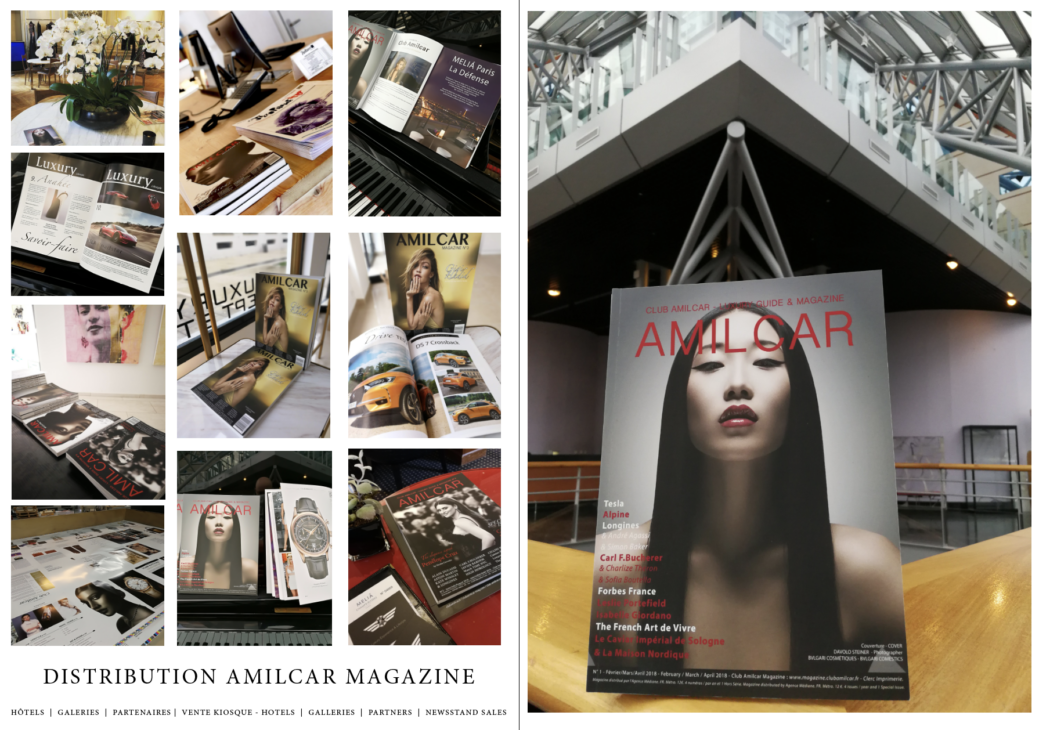
More information about AMILCAR USA MAGAZINE – AMILCAR CANADA MAGAZINE – AMILCAR UK MAGAZINE – AMILCAR ITALIA MAGAZINE – AMILCAR LATINO MAGAZINE – AMILCAR SWITZERLAND MAGAZINE:

- Rachel Joulia-Helou: Editor-in-chief of GROUPE MAGAZINE AMILCAR.
- Alexandre Joulia, photographer and deputy editor of AMILCAR MAGAZINE GROUP.
- rachel@amilcarmagazine.com – alexandre@amilcarmagazine.com
- usa@amilcarmagazine.com – uk@amilcarmagazine.com
- canada@amilcarmagazine.com – contact@amilcarmagazine.com
AMILCAR MAGAZINE GROUP :
- AMILCAR MAGAZINE GROUP
- AMILCAR MAGAZINE
- AMILCAR USA MAGAZINE
- AMILCAR UK MAGAZINE
- AMILCAR CANADA MAGAZINE
- AMILCAR CORSICA MAGAZINE
- AMILCAR SWITZERLAND MAGAZINE
- AMILCAR ITALIA MAGAZINE
- AMILCAR LATINO MAGAZINE
- AMILCAR FRENCH RIVIERA MAGAZINE
- AMILCAR LUXURY MAGAZINE
- AMILCAR SEASIDE MAGAZINE
- AMILCAR STYLE MAGAZINE
- AMILCAR STYLE & BEAUTY MAGAZINE
- AMILCAR BEAUTY MAGAZINE
- AMILCAR FASHION MAGAZINE
- AMILCAR MEN’S MAGAZINE
- AMILCAR MOTORS MAGAZINE
- AMILCAR GOURMET MAGAZINE
- AMILCAR DESIGN MAGAZINE
- AMILCAR BUSINESS MAGAZINE
- AMILCAR KIDS MAGAZINE
- AMILCAR CHRONOS MAGAZINE
- AMILCAR WATCHES MAGAZINE
- AMILCAR TRAVEL MAGAZINE
- ALENA INSPIRATIONS
- BY RACKEL SELECTIONS
- THE RIGHT NUMBER MAGAZINE
AMILCAR MAGAZINE & THE RIGHT MAGAZINE ISSUE:
CLUB AMILCAR GROUP :
- CLUB AMILCAR: Concierge & Luxury Shopping
- AMILCAR TRAVEL by CLUB AMILCAR
- AMILCAR CONCEPT STORE – Shopping & Limited Edition
- BEAUTY & FASHION SHOP
- AMILCAR SHOP GIFT CARD
- MEDIAN AGENCY: EDITOR – PR – EVENT – BRAND DEVELOPMENT
- MEDIAN AGENCY: International PR AGENCY
- TALENT AGENCY by AGENCE MÉDIANE
Discover our brands in the windows of the Club Amilcar on B Signature Group :
- Hotel Bel Ami – 5 star hotel : 7, Rue Saint-Benoît, 75006 Paris – https://www.hotelbelami-paris.com/fr/
- Hotel Montalembert – 5 star hotel : 3, rue Montalembert 75007 Paris – https://www.hotelmontalembert-paris.com/
Discover our members in the windows of the Melià Paris Opéra hotel: Hôtel Paris Opéra Affiliated by Melia : Address in Paris: 3 Bd Montmartre, 75002 Paris – click here

